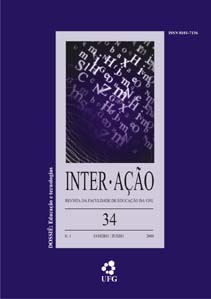CIVIL SOCIETY AND THE PUBLIC SPHERE IN DEMOCRATIC REGIMES: NOTES ON POPULAR PARTICIPATION
DOI:
https://doi.org/10.5216/ia.v34i1.6567Abstract
In this paper issues concerning the relationship between civil society and the public sphere in the context of democratic regimes are discussed. Therefore, a brief tour of the concept of civil society and the emergence of a civil society in Brazil will be initially presented. Dagnino’s studies will be used to characterize Brazil. In the second part, a description of the public sphere will be presented as a space for a discussion of the demands to be included in the public agenda. In the final part of this work, the need to socially qualify the actors of civil society will be pointed out, in an effort to bring about the generation of public demands as popular participation.Downloads
Downloads
Published
How to Cite
Issue
Section
License
Inter-Ação uses the Creative Commons Attribution 4.0 License for Open Access Journals (Open Archives Initiative - OAI) as the basis for the transfer of rights. Open access means making documents available on the Internet free of charge, so that users can read, download, copy, distribute, print, search, or link to the full text of documents, process them for indexing, use them as input data for software programs, or use them for any other lawful purpose, without financial, legal, or technical barriers.
Authors publishing in this journal agree to the following conditions:
1) Authors retain copyright and grant the journal the right of first publication, with the work simultaneously licensed under the Creative Commons Attribution License, which permits redistribution of the work with attribution and first publication in this journal.
2) Authors are permitted to enter into additional, separate agreements for non-exclusive distribution of the version of the work published in this journal (e.g., for publication in an institutional repository or as a book chapter), with attribution and first publication in this journal.
3) Authors are permitted and encouraged to publish and distribute their work online (e.g. in institutional repositories or on their home page) at any time before or during the editorial process, as this may generate productive changes as well as increase the impact and citation of the published work.















